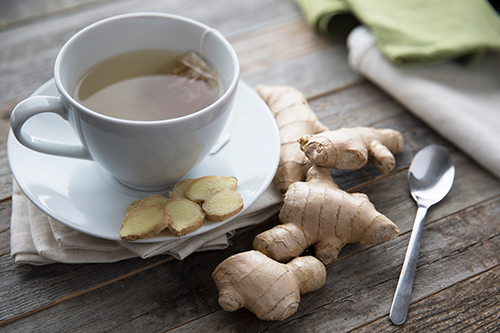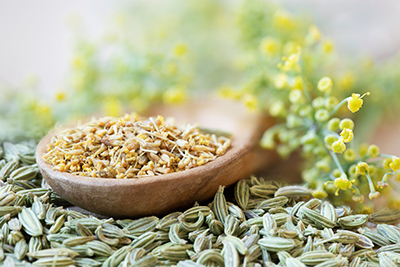Contents

Almost all medicinal herbs for the digestive system affect the entire system. The herbs we describe on this page act on all digestive organs, including the stomach, the intestine, the liver, and the pancreas. These herbs promote digestion through two primary actions:
- Activating the digestive tract’s peristaltic movements, or contractions, causes the intestines to pass. The bolus does not pass adequately when these contractions are not intense enough or ineffective. Thus, digestion is slow, and the intestine becomes bloated.
- Boosting the production of digestive juices in the stomach, the intestine, and the pancreas. A lack of juices makes digestion slower.
A correct, natural, healthy diet is required for these plants to be effective. No medical herb or medicine can compensate for the adverse effects caused by an unhealthy diet.
Herbs For the Digestive System
Types of Digestive Disorders

Bad breath: Abnormal smell of the exhaled air, usually caused by mouth (pyorrhea), gastric (retention of in stomach), or intestinal (fermentation) disorders. Besides these herbs, all those used for pyorrhea, dyspepsia, and intestinal fermentation can be administered.
Appetite, lack of: Any disorders affecting the digestive system, from the esophagus to the intestine, can produce a lack of appetite. This can also be caused by psychological disorders (anorexia nervosa). Before trying any treatment, a professional should diagnose the causes of the lack of appetite.
More Digestive Herbs
The following herbs favorably affect the digestive process by controlling the stomach and the intestine movements (peristaltic movements) and increasing the secretion of gastric juices, which are necessary for good digestion.

Abdominal pain is usually caused by functional digestion disorders, such as “nervous stomach,” excess gas, bloated stomach or slow digestion, inadequate food mixtures, or constipation. Herbs are suitable for the digestive system to regulate and balance the digestive process. If the causes of disorders are suppressed.
Fennel and anise, cumin, and coriander belong to the “Umbelliferae” botanical family. These herbs contain essences with digestive and carminative (against intestinal gas) properties.
No herbal remedy, plant-based treatment, or medicine-based one can compensate for digestive disorders caused by an unhealthy diet.
DISCLAIMER: All content on this website is presented solely for educational and informational objectives. Do not rely on the information provided as a replacement for advice, diagnosis, or treatment from a qualified medical expert. If you are pregnant, nursing, or have any preexisting medical concerns, talk to your doctor before using any herbal or natural medicines.
REFERENCES
- George D. Pamplona-Roger, M.D. “Encyclopedia of Medicinal Plants.” George D. Pamplona-Roger, M.D. Encyclopedia of Medicinal Plants. Ed. Francesc X. Gelabert. Vols. 1 San Fernando de Henares: Editorial Safeliz, 2000. 346, 347, 348. Print. [herbs for the digestive system]
- https://www.womenshealthnetwork.com/digestive-health/herbal-remedies-for-digestive-system/
